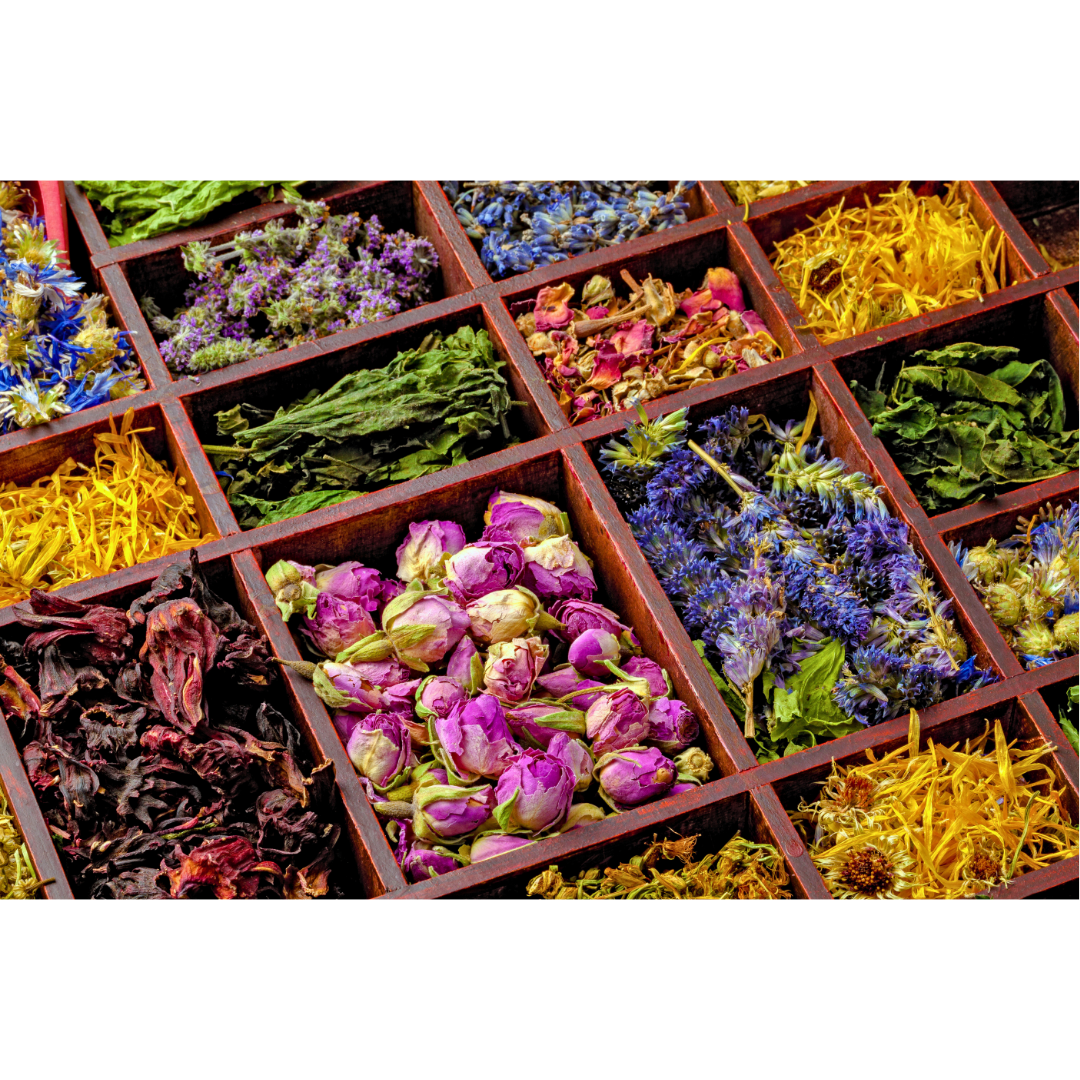Tea-Baths: Ancient Traditions Around the World 🌍🛁
•Posted on July 21 2025

When you think of tea, you probably imagine sipping a warm cup. But across cultures, tea has been more than just a drink, it has been a ritual for healing, cleansing, and self-care. One of the most fascinating traditions is the tea-bath, where tea leaves, herbs, and botanicals are steeped not just for drinking, but for soaking.
Let’s take a journey around the world to see how tea-baths have been used for centuries to restore balance in body, mind, and spirit.
🌸 Southeast Asia: Mandian Bunga (Floral Baths)
Across the Malay Archipelago, there’s a beautiful ritual called Mandian Bunga, or “flower bath.” Traditionally, a mix of fragrant flowers and herbs were floated in water to wash away negative energy and invite good fortune.
Although not strictly tea in every ritual, the concept is similar — water infused with botanicals to cleanse the aura, soothe the skin, and refresh the spirit. Today, modern adaptations often include green tea or roselle for their antioxidants and vibrant colors.
🍵 China & Taiwan: Oolong Baths for Balance
In ancient China, oolong tea was valued not only as a beverage but also as a skin and wellness remedy. Tea leaves were believed to draw out toxins, calm the mind, and refresh energy. Wealthy households often used oolong in bath rituals to maintain beauty and vitality.
Taiwan, known for its mountain-grown oolong, carries similar traditions — blending tea with flowers like jasmine or osmanthus to create fragrant bath infusions. These rituals weren’t just about beauty but about restoring balance, a core principle of Traditional Chinese Medicine.
🍃 Japan: Hojicha & Onsen Rituals
In Japan, tea is deeply tied to mindfulness. Beyond the famous tea ceremony, tea has also been used in onsen (hot spring) culture. Many onsen towns still offer green tea baths believed to cleanse the skin and rejuvenate the spirit.
Among the teas, hojicha — with its roasted, nutty aroma — became a favorite for relaxation. Its low caffeine and high L-theanine content make it perfect for unwinding, especially in evening baths. Steeping hojicha in hot water was seen as a way to purify not just the body, but the aura, encouraging calmness and renewal.
🪷 India: Ayurvedic Herbal Infusions
In Ayurveda, the ancient Indian system of natural healing, herbal baths have long been used for balancing the doshas (mind-body energies). Herbs like tulsi (holy basil), neem, and even black tea were steeped in water to purify the skin, reduce stress, and restore inner harmony.
These baths were often paired with meditation or breathing practices, making them a holistic ritual of mind-body healing rather than just physical cleansing.
🌿 Europe: Herbal & Milk Baths
While tea itself wasn’t always the star, Europe has a long history of botanical soaks. From Cleopatra’s legendary milk baths (often infused with herbs and honey) to medieval herbal remedies, water was seen as a carrier of both beauty and health.
Today, herbalists in Europe often blend black tea, chamomile, and lavender for soothing skin and reducing stress. The antioxidants in tea are now scientifically recognized for their anti-inflammatory and skin-protecting properties — confirming what traditions had known for centuries.
🌍 The Modern Revival of Tea-Baths
What unites these diverse traditions is the belief that soaking in botanicals is healing for body and spirit. Whether it’s oolong in China, hojicha in Japan, or flowers in Southeast Asia, each ritual reflects a universal human desire: to cleanse, renew, and reconnect with nature.
Today, tea-baths are making a comeback — not as a luxury reserved for royals or temples, but as a simple self-care practice at home. With every soak, you’re stepping into a tradition that has traveled across time and cultures, carrying with it centuries of wisdom.
Why Try a Tea-Bath Today?
🌿 For the Body: Tea and herbal antioxidants nourish the skin, ease inflammation, and calm irritation.
🌸 For the Mind: Gentle floral aromas and soothing warmth signal the nervous system to relax, reducing stress hormones.
✨ For the Soul: Just as the ancients did, we can embrace rituals that release negativity and invite renewal.
With Aureva Natural tea-baths, these age-old traditions are reimagined for modern living — giving you an easy, at-home ritual to relax, restore, and reconnect with yourself. So the next time you brew a pot of tea, set a little aside for your bath. You’ll be honoring a timeless tradition — and giving yourself a moment of peace in a world that rarely slows down.